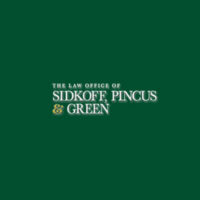Why Should I Avoid Copying Another Business’s Contract Language?

Every business should have a contract, often called Terms of Use or Privacy Policy, that is specific to their company, and includes detailed information about the parties involved, the goods or services that are being exchanged, and the details of the agreement. Start-up companies or entrepreneurs who are building a business may be tempted to use language from another company’s contract to avoid paying a lawyer to draft a new contract. Tempting as this may be, there are a number of reasons why this is highly discouraged. The cost of hiring a lawyer to generate a business contract will save you money in the long run and protect your company from lawsuits or regulatory investigations.
Reasons Why Copying a Contract is Discouraged
- Bad Publicity: Negative media attention can be very damaging to a small company. Depending on how small the company is, it may not survive the bad publicity. A company can run into trouble if the contract they copied was drafted to comply with laws from another jurisdiction. In addition, it could be out of date or include protections for goods or services that are different from those provided by your company. This could leave the company vulnerable to lawsuits.
- It could scare off investors: Potential investors may walk away if they find out that your company is involved in a lawsuit or is being investigated by state or federal regulators.
- A strong contract distinguishes you from the competition: The terms and conditions of a contract should reflect the company’s mission and values. It does not need to contain complicated legal jargon. In fact, the best contracts are easy to read and understand, legally accurate, and on brand.
- Copying a contract is illegal. Copying another company’s contract without their permission is a violation of copyright law. It also sets an example within the company that it is acceptable to break the rules.
- The company’s entire user agreement could be invalidated. If it is discovered that a company copied another company’s legal contract, it could invalidate the contract and leave the company vulnerable to steep fines, class action lawsuits, and put the future of the organization at risk.
There are contract templates available online. However, they are often written by individuals who do not have a legal degree and are unqualified to write a business contract. Therefore, it is highly discouraged to go this route. Invest the time and money in hiring a business lawyer to draft a legal contract for your company.
Philadelphia Business Lawyers at Sidkoff, Pincus & Green P.C. Assist Clients with Business Contracts
If you are starting up a new company, or you require assistance with important legal documents for your existing company, do not hesitate to contact the Philadelphia business lawyers at Sidkoff, Pincus & Green P.C. We have extensive experience in drafting business contracts that are concise, legally accurate, and reflect your company’s brand and mission. To schedule a confidential consultation, call us today at 215-574-0600 or contact us online. Located in Philadelphia, we serve clients throughout Pennsylvania and New Jersey.















 In the case of Janus v. AFSCME, the Supreme Court ruled that public sector unions could not charge public employees for agency fees, even though they are still required to bargain on their behalf. Union supporters argued that the decision would devastate organized labor, compromise their political power, and cause employees to leave their unions. The organizations representing the employees, including the Liberty Justice Center, say that they are simply fighting for the workers’ rights. Since the Janus ruling, at least nine lawsuits have been filed on behalf union workers in Pennsylvania.
In the case of Janus v. AFSCME, the Supreme Court ruled that public sector unions could not charge public employees for agency fees, even though they are still required to bargain on their behalf. Union supporters argued that the decision would devastate organized labor, compromise their political power, and cause employees to leave their unions. The organizations representing the employees, including the Liberty Justice Center, say that they are simply fighting for the workers’ rights. Since the Janus ruling, at least nine lawsuits have been filed on behalf union workers in Pennsylvania.